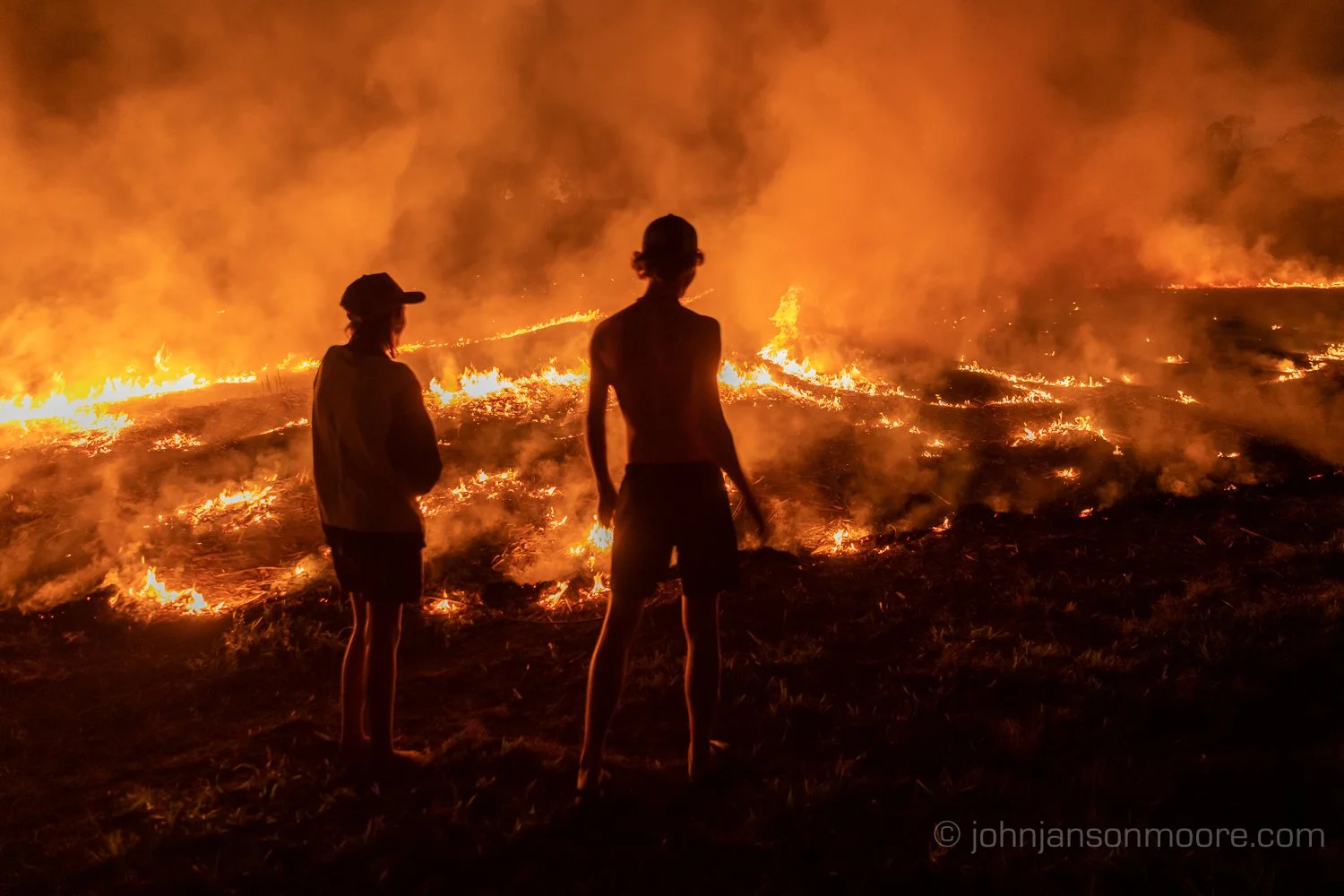Sugar cane workers just outside of Mossman in Far North Queensland burn fields at the end of harvest, to rejuvenate the soil in preparation for the sowing of the next crop.
Against the dramatic backdrop of the world heritage Daintree rainforest, young men and boys set fields of cane refuse alight at sunset, under the watchful eye of farmer and head supervisor, Gary Mackay.
This year, the sugar cane industry has been hit by unseasonal rains across the dry season - over 250mm last month alone - a result of La Niña which has drenched the east coast of Australia.
COVID-19 has also impacted the cane industry as the workforce shrinks due to virus. This labour shortage means longer work hours for already pressed rural workers, such as these cane croppers. Truck drivers and tractor operators are being sought from overseas, from the Philippines, and elsewhere.
Despite this, the industry is looking to the future to produce cane not just for sugar, but also for the new ‘low carbon’ economy, as a source of biofuel and biodegradable plastics. The viability of the entire industry relies on the success of this kind of forward looking diversification. Otherwise, the very survival of towns like Mossman and farms such as Gary Mackay’s, is at risk.
*Click through images for full screen view



































































